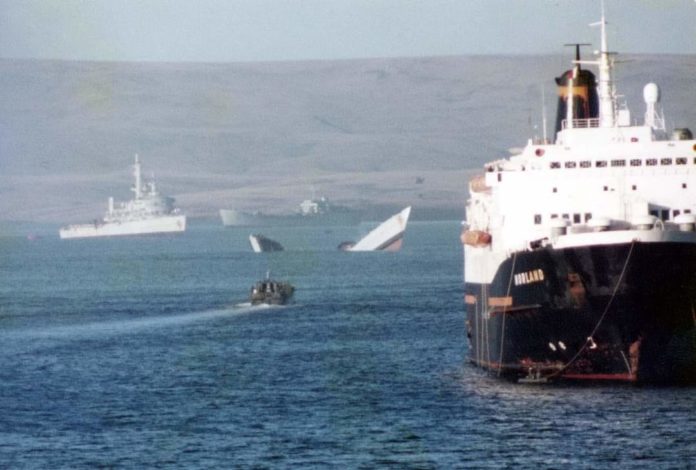Peter McWatt, who lives in Orihuela Costa, was just 19 years of age when he joined the MV Norland as a second cook, and he loved it. Regular shifts, decent money, holidays, and no pressure. He just did as he was told, and life was all good.
Speaking to The Leader Peter said, “Although my dad was a World War Two veteran, and a hero in my eyes, I chose the easy option, a life at sea but the safe haven of a roll on/roll off North Sea Ferry. There was none of that ducking, diving and shelling for me, just the quiet life on board the Norland, operating between Kingston upon Hull in Yorkshire, and Rotterdam Europoort, Netherlands.”
But in 1982 all that changed, as the vessel was requisitioned by the Ministry of Defence to be used as a troopship in the Task Force sent to retake the Falkland Islands from Argentina.
“I remember Captain Ellerby getting us all on deck. He told us of the MOD requisition and made it absolutely clear that anyone wishing to leave the ship was quite free to do so. All 70 crew members stood firm. It was one of the proudest moments of my life.”
Once under MOD command the Norland made for Hull and then Portsmouth where it was fitted with two helicopter landing pads. In April 1982 it then took on board very nearly a thousand troops from 2 Para together with their supporting arms, who were scheduled to join 3 Para, the Royal Marines and others, as part of 3 Commando Brigade.
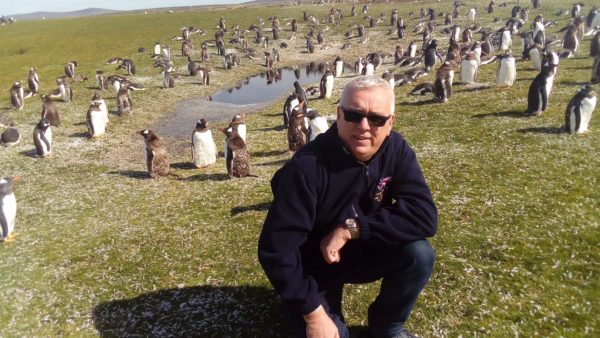
“Leaving Portsmouth bound for the Falklands must have been difficult for the Paras, with hundreds and hundreds of family members and friends on the quayside, not knowing if they would ever see their loved one’s again, as we sailed into the Solent. We had been in a similar position a few days earlier when we left our home port of Hull. “It was agonising, as all our families came out to see us off,” Peter said, “and so, the ship sailed off to war.
But the crew’s minds were now on other things as they turned their attention to providing all necessary support for those on board. Down in the galley Peter was busy preparing over 3000 meals a day. “The kitchen operated for 24 hours a day, and we were turning out meals at all times of the day and night.”
The long voyage was rough with plenty of choppy seas, but the Norland was “in her element and as strong as an ox” on the voyage south and, during storm force 10 and 11 gales. Indeed, at times the ship’s escorts had to signal for us to slow down.”
The mid-way staging post was the Ascension Islands, where the Norland was replenished, taking on board additional weapons and equipment. It was also joined by additional military and the crew was given another chance to leave the ship, but again no-one took up the offer.
It then sailed on to the Falklands, a journey of a further 10 or so days while, the military continued to practise and hone their skills.
Arriving at East Falkland the ship crept under cover of darkness close to its destination, where the Norland was the first vessel to enter San Carlos Water, soon to become known as ‘Bomb Alley’. The anchorage took place at dead of night in absolute silence. Both anchors were dropped but as they had seized up because of the cold weather, and as the crew and passengers held their collective breath, the anchor chains had to be freed by hitting them with large hammers.
Norland disembarked her troops under the cover of darkness and as the following day broke the she found that she was surrounded by other members of the task force. As the sun came up all hell broke loose with onslaught after onslaught. A dozen or more low-flying land-based Argentine jet aircraft made repeated attacks on ships of the British Task Force.
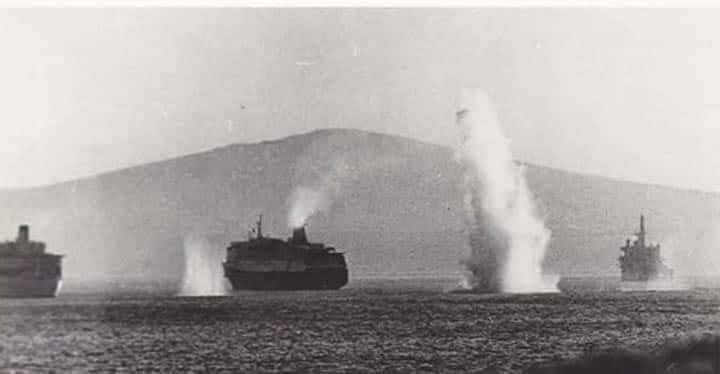
in ‘Bomb Alley’.
Peter recalls the air-raid sirens and being sent below to his cabin during every attack, the wisdom of which he now questions. “Although at the time I just did as I was told. I didn’t know what was going on, but I could certainly hear the explosions above.”
San Carlos became a key battle ground which lasted from 21 to 25 May 1982 with British Naval losses that included three Royal Navy ships, HMS Ardent, HMS Antelope and HMS Coventry.
The British warships, although themselves suffering most of the attacks, were successful in keeping the strike aircraft away from the landing ships, which were well inside the bay.
With the British troops on Falklands soil, a land campaign followed until Argentine General Mario Menéndez surrendered to British Major General Jeremy Moore on 15 June in Stanley.
But it was another year before the MV Norland was able to return to it’s day, job prior to which it was used to repatriate Argentine prisoners of war to Montevideo and Argentina. It then served as resupply ship ferrying equipment, goods and personnel between the Ascension Islands and Port Stanley.
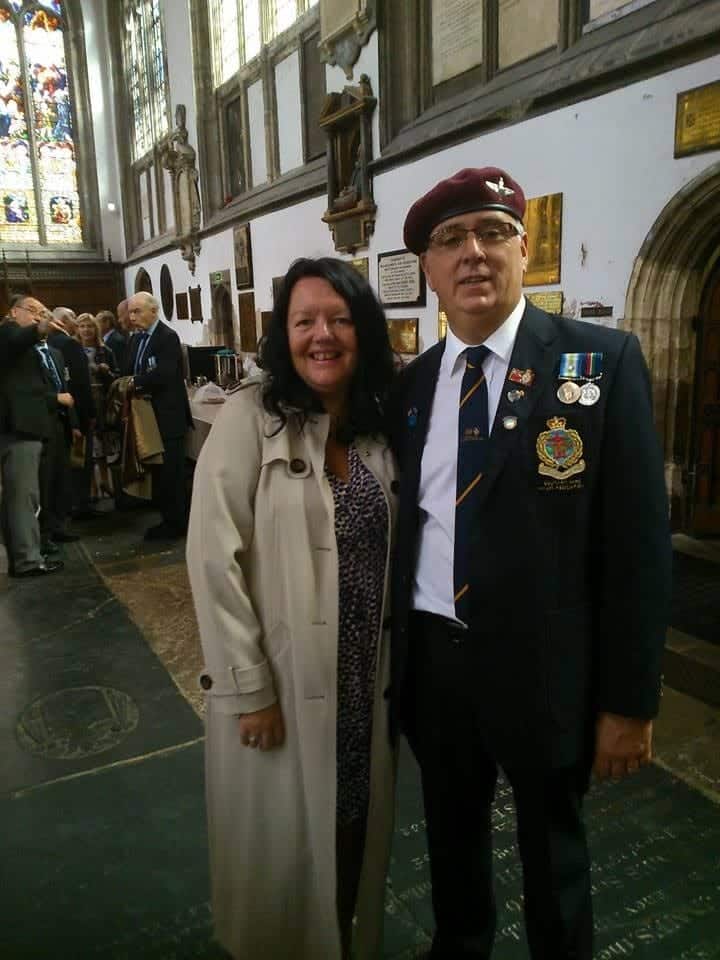
For it’s service the Norland received the battle honour “Falkland Islands 1982,” which for many years was displayed in one of the passenger lounges, with a painting of the ship in San Carlos Water. The ship was broken up in India in the summer of 2010. Meanwhile, on the 30th anniversary of the Falklands War, all members of the Norland crew received a maroon beret, as they were made honorary members of 2 Para.
Peter recalls, “We were the first in and the last out and although it was more than a little scary I would do it all again at the drop of a hat. The experience was life changing and I made so many lifelong friends. I’m delighted that we are still able to get together on a regular basis and I would not change the experience for the world.”
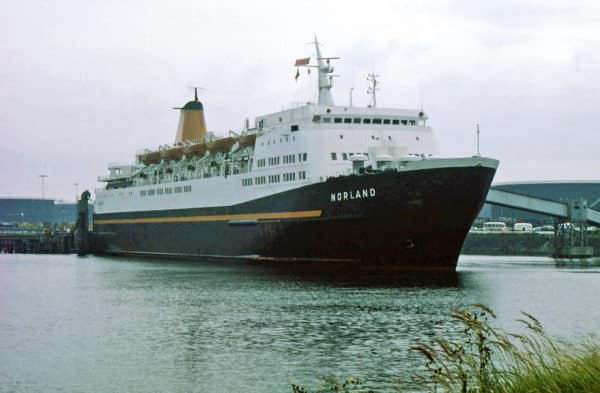
By Wolfgang Fricke – Own work, CC BY 3.0, https://commons.wikimedia.org/w/index.php?curid=103130684

